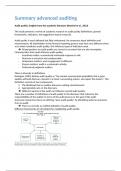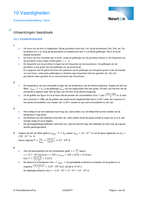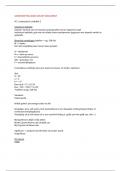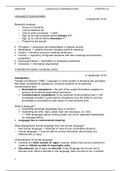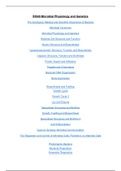Samenvatting
Summary advanced auditing
- Instelling
- Vrije Universiteit Amsterdam (VU)
I offer my summary of the course 'advanced auditing' for sale. The summary is 88 pages long and contains all the MANDATORY articles of the advanced auditing course (it excludes notes of the lectures and of the non-mandatory articles!). Sometimes I refer in this summary to a specific image or graph ...
[Meer zien]
